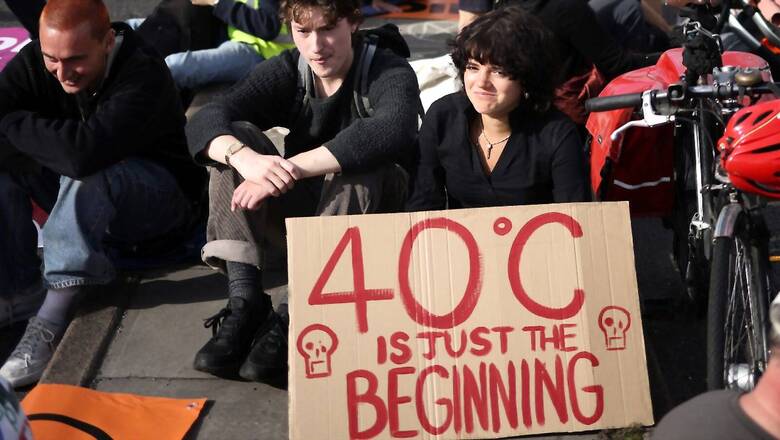
views
Today, we live in a world where global warming and climate change are serious threats. With the average global temperatures rising, the probability of extreme hot temperature anomalies is also increasing, further leading to long, frequent and intense heatwaves. This is a danger to the entire planet and has serious implications at social, ecological and economic levels. One of its severe impacts is on the global climate scenario in the form of climatic changes.
Heatwaves inducing climatic changes
Due to heatwaves, climate change is intensifying. The disruptions in the traditional global atmospheric circulation systems, such as the jet stream in the northern hemisphere, are expected to surge globally in the future. This will lead to all the more frequent and intense climatic changes.
“Considering the last few years, heatwaves have been lasting longer than usual. In fact, last year, India had to deal with extreme heat. Because of heatwaves, the probability of an event like this has increased by 30 times and is even leading to delayed onset of the seasonal monsoon season,” says Dr Deepak Birewar, Chairman & MD, Inventys Research Company.
“Heatwaves are causing false autumn, a phenomenon wherein trees shed their leaves early to save water and energy. The occurrence of incidents of wildfire and melting airport runways are also increasing. Heatwaves further lead to drought, significantly impact agricultural practices, and even pose difficulties for countries to comply with environmental regulations. Additionally, the impact on human health in the form of heat stress and heat-related illnesses, especially respiratory and cardiovascular diseases, is significant and cannot be ruled out,” adds Dr Birewar.
Also Read: Summer Special: 5 Food Items That Can Help In Weight Loss
The possible solutions to deal with heatwaves’ impact
With the rise in global warming, industry reports predict heatwaves will become all the more common and hot. As per climate scientists, reducing carbon footprints and greenhouse gas emissions are effective solutions to mitigate climate change and reduce the impact of heatwaves. Efforts to ensure global temperatures remain below 1.5°C are important to be made consistently and persistently. Additionally, planting as many trees as possible will be effective in dealing with the heatwaves’ intensity.
Today, the scenario is such that if greenhouse gas emissions are not curtailed; at the global mean temperature scenario of +2C, the world will be 0.5-1.5C hotter as compared to 2022. “Understanding the severity of the situation, adopting cooling practices is already underway in various parts of the globe. Wind tunnels, light-colored fabric sunshades with solar panels and mist sprays are in pipeline as an attempt to reduce the rising temperatures and in turn, heatwaves. All in all, we need to focus on urban greening and sustainability to cool down the globe. We also need to look at alternative cooling sources like shading and natural ventilation that can help reduce pressure on air conditioning by up to 80%,” opines Dr Birewar.
Read all the Latest Lifestyle News here
















Comments
0 comment